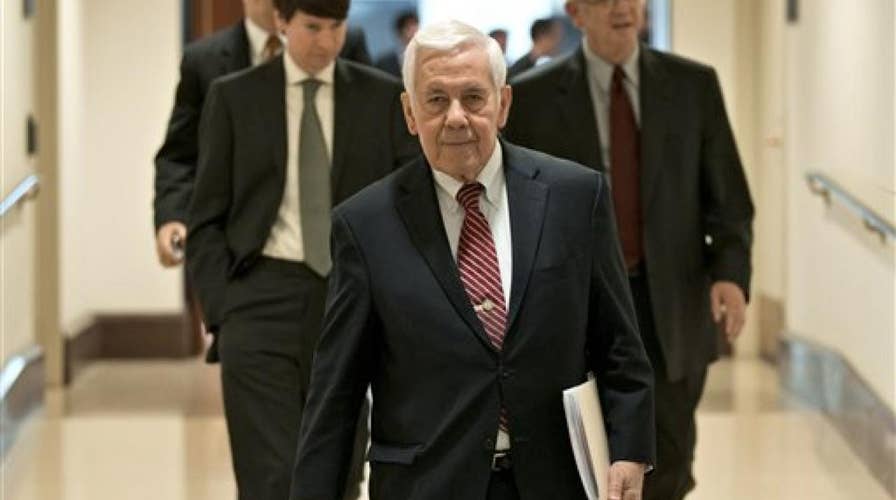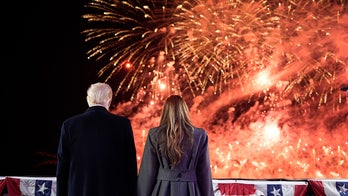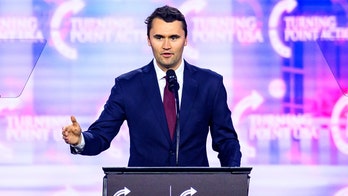Former US Sen. Richard Lugar dies
Former United States Senator Richard Lugar, a foreign policy expert, has died at the age of 87.
INDIANAPOLIS – Former U.S. Sen. Richard Lugar of Indiana died Sunday in Virginia at the age of 87.
Lugar, a Republican foreign policy expert who helped to arrange the dismantling of thousands of nuclear weapons from former Soviet states died early Sunday at the Inova Fairfax Heart and Vascular Institute in Virginia. The cause of death was complications relating to chronic inflammatory demylinating polyneuropathy.
Lugar was a Rhodes Scholar who was first elected to the Senate in 1976, after eight years as Indianapolis mayor.
He is survived by wife Char, his four sons - Mark, Bob, John, and David - and their families.
NORTH KOREA THREATENS TO RESUME NUCLEAR WEAPONS PROGRAM OVER SANCTIONS
A soft-spoken and thoughtful former Rhodes Scholar, Lugar dominated Indiana politics during his 36 years in the U.S. Senate. That popularity gave him the freedom to concentrate largely on foreign policy and national security matters — a focus highlighted by his collaboration with Democratic Sen. Sam Nunn on a program under which the U.S. paid to dismantle and secure thousands of nuclear warheads and missiles in the former Soviet states after the Cold War ended.
"Every stockpile represents a theft opportunity for terrorists and a temptation for security personnel who might seek to profit by selling weapons on the black market," Lugar said in 2005. "We do not want the question posed the day after an attack on an American military base."
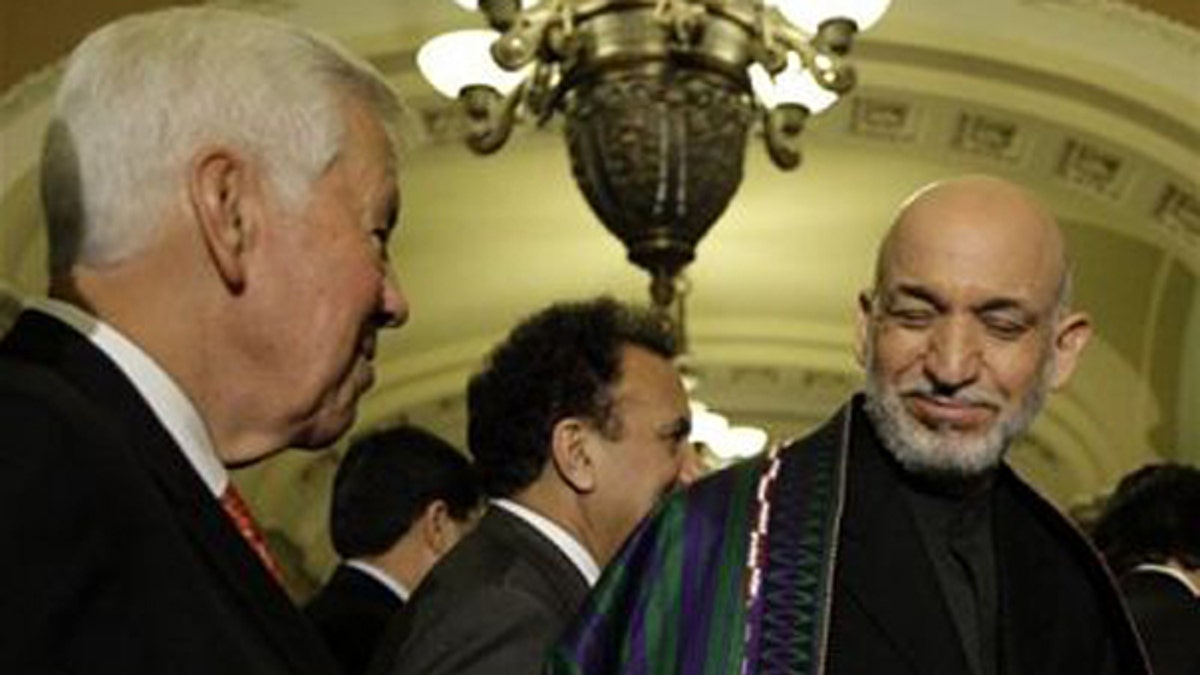
Sen. Richard Lugar talks with Afghanistan President Hamid Karzai at a news conference on Capitol Hill. (AP Photo)
The Nunn-Lugar program led to about 7,600 Soviet nuclear warheads being deactivated and the destruction of more than 900 intercontinental ballistic missiles by the time Lugar left office, according to U.S. military figures. The program is credited with removing all nuclear weapons from the former Soviet republics of Kazakhstan, Ukraine and Belarus.
He served for decades on the Senate Foreign Relations Committee, twice as chairman, where he helped steer arms reduction pacts for the presidential administrations of George H.W. Bush, Bill Clinton and Barack Obama, supported an expansion of NATO and favored aid to Nicaragua's Contra rebels.
Lugar tried to translate his foreign policy expertise into a 1996 presidential run, where his slogan was "nuclear security and fiscal sanity." But his campaign for the GOP nomination went badly from the start. His kickoff rally began just hours after the 1995 bombing of the Oklahoma City federal building, and he struggled to build name recognition and support.
"He is not, nor does he try to be, a good ol' boy," Rex Early, a former state Republican chairman who worked on many of Lugar's campaigns, said during the presidential run. "He is not a back-pounder and doesn't tell funny jokes and have a beer with the boys."
Lugar tried to counter questions about his demeanor, contending that the presidency is "serious business. The presidency is not entertainment." But he was chafed at criticism that he was too straight, too smart, too dull.
"I don't know what that means," he said. "Is it better to have someone stupid? Or mediocre? Or halfway there?"
Lugar's time as a Washington foreign policy expert was the highlight of a political career that began with his election to the Indianapolis school board in the early 1960s. It was there that he caught the eye of city GOP leaders, who encouraged him to run for mayor in 1967.
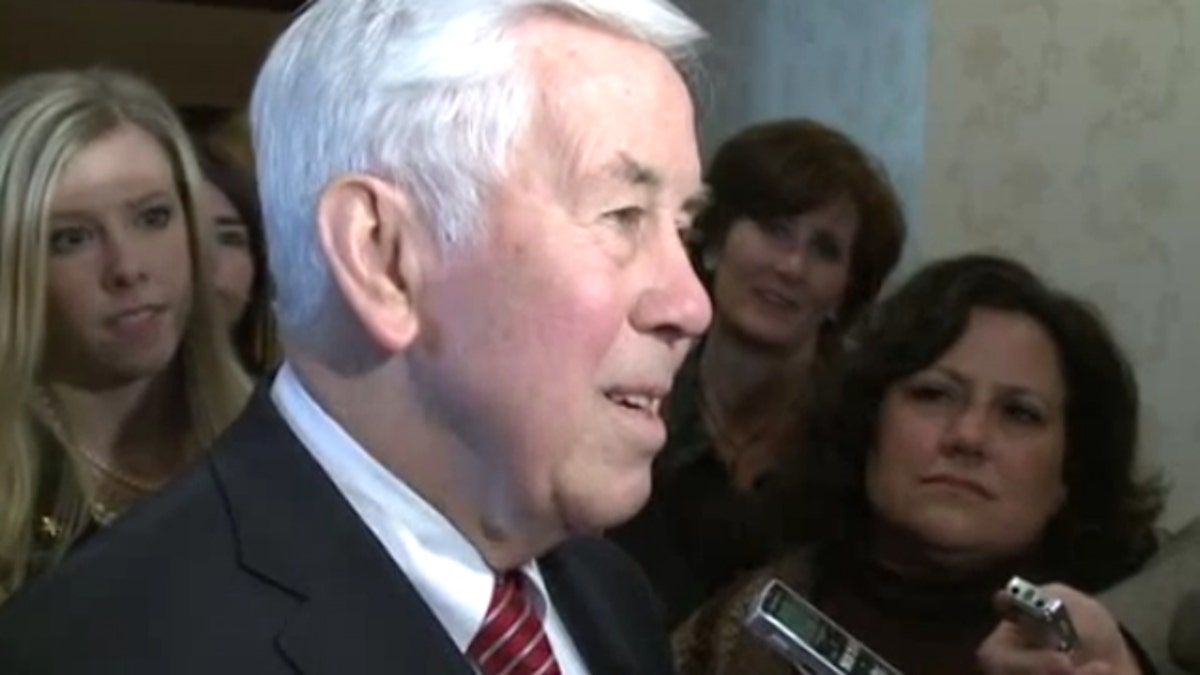
Feb. 20, 2012: Sen. Richard Lugar talks to reporters about his official state residency. (Fox59)
He served two terms at the city's helm, leading the unification of Indianapolis and its suburban communities in Marion County, which solidified the city's tax base and added so many Republican voters that Democrats weren't able to win the mayor's office again for more than 30 years. He also started efforts to revive the city's downtown with construction of Market Square Arena, which in turn helped bring the Indiana Pacers into the NBA and spurred Indianapolis' development as a sports city that culminated in the 2011 Super Bowl. He was referred to as "Richard Nixon's favorite mayor" for backing the move of federal programs to local governments.
He first ran for Senate in 1974, narrowly losing to Sen. Birch Bayh in a Democratic landslide after the Watergate scandal. He ran again two years later and easily unseated three-term Democratic Sen. Vance Hartke, launching a 35-year Capitol Hill career that made him Indiana's longest-serving senator.
He built a reputation as someone willing to work across the aisle and showed he could buck his party, notably with two major disagreements with President Ronald Reagan.
In 1986, Reagan was inclined to accept the rigged election that would have kept Philippine President Ferdinand Marcos in office. But Lugar went to the islands as an election observer and said Reagan was misinformed. Lugar's stand shifted U.S. support to the ultimate winner, Corazon Aquino, bringing down Marcos.
In another break with Reagan, Lugar pushed through Congress — over the president's veto — the economic sanctions that Nelson Mandela said played a crucial role in overthrowing white minority rule in South Africa.
CLICK HERE TO GET THE FOX NEWS APP
His foreign policy work didn't sit well with everyone. Sen. Jesse Helms ousted him as the top Republican on the foreign relations committee in 1986 as being "too internationalist."
At home, Lugar remained the Indiana GOP's most popular figure, trouncing his opponents by winning at least two-thirds of the vote in four straight elections. Democrats considered him so invincible that they didn't nominate a challenger for the 2006 election.
"Dick Lugar was not just the finest public servant I will ever know, he was the finest person," former Indiana Gov. Mitch Daniels, who served as Lugar's chief of staff in the Senate, said in a statement. "He embodied all we can hope for in our leaders: brilliance of mind, purity of motive, stainless in character, tireless in the pursuit of duty. "
Vice President Mike Pence - who also previously served as governor of Indiana - also released a statement on Sunday, calling Lugar a "leader not only in the Senate but also on the world stage."
"He worked tirelessly to bring pressure to end apartheid in South Africa and enforce treaties that destroyed Soviet weapons of mass destruction," Pence said. "As the longest serving member of Congress from Indiana, and a Presidential Medal of Freedom recipient, he leaves behind a legacy of public service that will inspire Hoosiers for generations."
Born April 4, 1932, in Indianapolis, Lugar became an Eagle Scout and graduated at the top of his classes at both Indianapolis Shortridge High School and at Denison University in Ohio. At Denison, he played cello and was the student body co-president with his future wife, Charlene. They married in 1956.
He was a Rhodes Scholar at Oxford University, and in 1956 he became a Navy officer, spending time as an intelligence aide for the chief of naval operations. He moved back to Indianapolis in 1960 to help run the family's food machinery manufacturing business.
A longtime fitness advocate, he sponsored runs in Indiana and even at age 70 completed a 3-mile (4.8-kilometer) competitive race in Washington in just over 28 minutes.
The Associated Press contributed to this report.




















